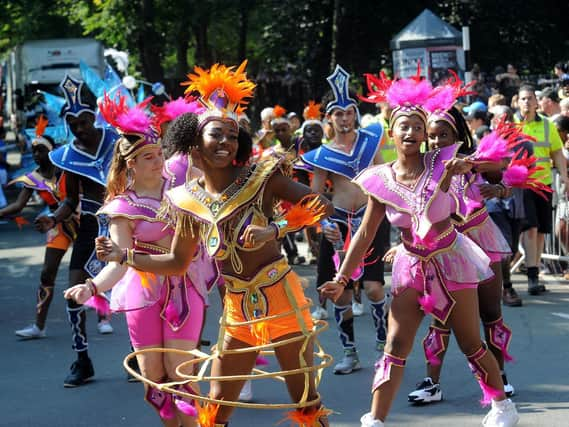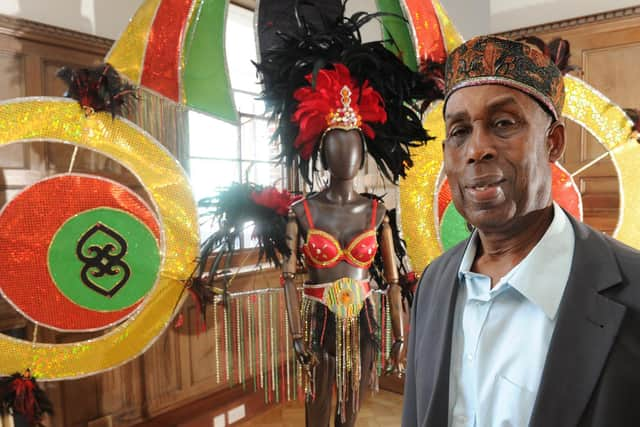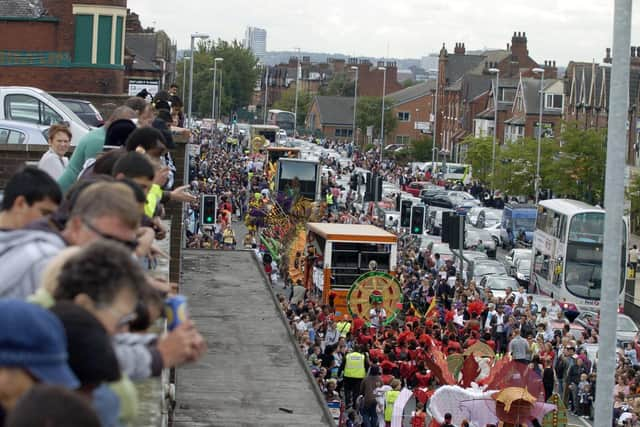Leeds West Indian Carnival moves online but will be back "with a bang" in 2021


Leeds Carnival is one of the most popular events in the city's calendar and celebrates the culture and history of the Caribbean community.
Sadly, it was cancelled this year due to the coronavirus pandemic.
Advertisement
Hide AdAdvertisement
Hide AdArthur France, who founded the Chapeltown based carnival back in 1967, said he was sad to cancel it but that health and safety took priority.


Dr France, 84, said: "It is sad, and people are disappointed, but it is one of those things where people's health has to come first.
"It is the first time we have had to cancel in 52 years.
"We are doing something online but it will not be how it normally is and there will be no crowds or parades."
-> Why we should channel the carnival spirit to unite in fight against coronavirus - Laura Collins, YEP EditorThe free online event will take place over two days - from Sunday, August 30 to Monday, August 31.


Advertisement
Hide AdAdvertisement
Hide AdThe hosts and performers will be broadcasting live from the West Indian Centre on Laycock Place.
They will all be socially distancing from one another.
Day one will look back on the last 10 years of Carnival Princes and Princesses as well as the Kings and Queens.
Day two will have live DJ sets, online performers and quizzes and prizes.
-> Leeds West Indian Carnival moves annual parade and celebrations onlineOrganisers of Leeds Carnival are now looking ahead and beginning to plan for next year.
Advertisement
Hide AdAdvertisement
Hide AdAs well as the usual colourful parades, delicious food and celebrations, they will also be incorporating a lot more history and traditional costumes into the event.
Dr France said it is important that as well as wanting to come back with a "big bang", he wants to "recognise the importance of carnival" and its history.
Dr France said: "All the plans we had for this year we have put on hold but we have started preparing for next year.
"We hope to come back with a big bang.
"I think that the Black Lives Matter movement has created more interest and passion about black history, the slave trade and what is happening in the Americas and Africa.
Advertisement
Hide AdAdvertisement
Hide Ad"Leeds Carnival is a celebration of the emancipation of the West Indies.
"We want to recognise and realise the importance of that and look at the more traditional issues around it.
"As well as the parade and celebration, we will be researching and looking at an exhibition to display the whole culture and history behind Carnival."
Tickets for the free events are available online.
> Founder of Leeds West Indian Carnival says education is key in wake of Black Lives Matter movementThe history of the slave trade in the Caribbean
Advertisement
Hide AdAdvertisement
Hide AdBetween 1662 and 1807, Africans were forcibly moved to British owned colonies and sold as slaves to work on plantations.
Britain shipped a total of 3.1 million Africans across the Atlantic Ocean during the Transatlantic Slave Trade, according to the National Archives.
The Slave Trade Act was passed in 1807, which made the buying and selling of slaves from Africa illegal.
However, the act of slavery itself had not ended.
In 1833, the Slavery Abolition Act made the purchase or ownership of slaves illegal within the British Empire.
Advertisement
Hide AdAdvertisement
Hide AdA message from the Editor: Leeds has a fantastic story to tell - and the Yorkshire Evening Post has been rooted firmly at the heart of telling the stories of our city since 1890. We believe in ourselves and hope you believe in us too. We need your support to help ensure we can continue to be at the heart of life in Leeds.Subscribe to our website and enjoy unlimited access to local news and information online and on our app. With a digital subscription, you can read more than 5 articles, see fewer ads, enjoy faster load times, and get access to exclusive newsletters and content. Click here to subscribe. For more details on our newspaper subscription offers click here.
Thank you
Laura Collins